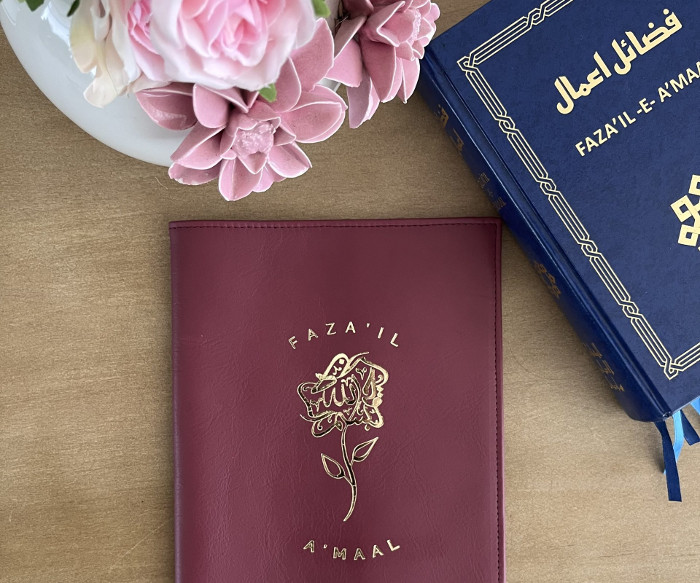
The Migration of the Muslims to Abyssinia - P1
At the beginning of Islam, Rasulullah (sallallahu ‘alaihi wasallam) and the Sahaabah (radhiyallahu ‘anhum) continued to face hardships and difficulties at the hands of the kuffaar. When their persecution and suffering continued to increase day-by-day (and practicing upon deen in Makkah Mukarramah became extremely difficult), then Rasulullah (sallallahu ‘alaihi wasallam) permitted the Sahaabah (radhiyallahu ‘anhum) to emigrate to another land.
It was then that certain Sahaabah (radhiyallahu ‘anhum) emigrated to Abyssinia. At that time, Abyssinia was ruled by a Christian king – who later on embraced Islam – and who was renowned for his mercy and justice.
In Rajab of the fifth year after nubuwwah, the first group of Sahaabah (radhiyallahu ‘anhum) emigrated to Abyssinia. This group comprised of eleven or twelve men, and four or five women. The disbelievers of Makkah (the Quraish) pursued them to prevent them from leaving, but were unable to capture them (as their ships had already left the shore).
When the group reached Abyssinia, they heard the rumor that all the people of Makkah (from the Quraish, etc.) had accepted Islam, and Islam was now the dominant religion in Makkah Mukarramah. This news brought great happiness to the Sahaabah (radhiyallahu ‘anhum) and they returned to their country.
When they reached Makkah, they learnt that the rumor was false and the people of Makkah were still persecuting the Muslims as before. In fact, they were now showing even more hostility to the Muslims and were torturing them even more than before.
This information placed them in a dilemma, and some of them decided to return to Abyssinia, while the rest entered Makkah under the protection of a few noble people. This is known as the first emigration to Abyssinia.
Later on, a large group consisting of eighty-three men and eighteen women also emigrated to Abyssinia. This is known as the second emigration to Abyssinia. Some Sahaabah participated in both the migrations, while other Sahaabah only participated in one.
The Quraish did not like the migrations, and the thought of peace enjoyed by the Muhaajireen gave them no rest. They sent a delegation to Abyssinia with gifts for the king, his special ministers and priests. The delegation first met the ministers and the priests. They gave them gifts and won their hearts, and also made them promise that they would intercede on their behalf by the king.
They then came to the king’s palace, and bowed down in front of him. After presenting their gifts to him, they said: “O king! A few foolish lads of our community have renounced their ancestral faith, and have joined an absolutely new religion, which neither we are acquainted with nor you are acquainted with. They have come and settled in your country. The nobles of Makkah, their own parents and families have sent us to bring them back to their country. We request you to please hand them over to us.” The ministers who accepted their gifts as bribery also supported their case before the king.
The king replied:
“Without proper investigation, we cannot hand over the people who have sought our protection. Let us first call them and hear what they have to say. If what you are saying is true, that they have forsaken their religion, then we will happily hand them over to you.”
Thereafter, the king summoned the Muslims to his court. At first, they were very worried as to what they should do, but Allah, out of His grace, assisted them and gave them courage, and they decided to go and speak the truth before the king.
When they came before the king, they greeted him with salaam. Someone objected that according to the rules of the land, they had not prostrated before the king. They explained, “Our Prophet (sallallahu ‘alaihi wasallam) has forbidden us from prostrating before anyone except Allah.”
The king then asked them to explain their side of the story regarding the accusations levelled against them. Hazrat Ja’far (radhiyallahu ‘anhu) stood up and said:
O king! We were an ignorant nation. We neither knew Allah nor His Ambiyaa (‘alaihimus salaam). We worshipped stones. We used to eat carrion and commit all types of evil and shameful acts. We would sever family ties, and the strong among us would oppress the weak.
We remained in this despicable condition, until finally, Allah Ta‘ala sent His Rasul (sallallahu ‘alaihi wasallam) (for our guidance and reformation). His pure lineage, truthfulness, trustworthiness and righteousness were well known among us.
He invited us to worship Allah Ta‘ala, and forbade us from worshipping idols. He commanded us with good behavior, and prohibited us from evil and shameless actions. He commanded us to speak the truth, be trustworthy, join family ties and to do good to our neighbors. He commanded us to perform salaah, to fast and discharge zakaat, and he taught us good character.
He stopped us from committing zina, carrying out evil deeds, speaking lies, usurping the wealth of orphans, making false accusations against people and all other evil things.
He taught us the Noble Qur’aan (the wonderful book of Allah Ta‘ala). We believed in him, followed him and practiced on his teachings. Thereupon, our people began to persecute us and subject us to every type of torture (thinking that we might give up our Islam and go back to idol worship). Finally, when their cruelties became too much to bear, we were forced to escape to your country, with the permission of our Rasul (sallallahu ‘alaihi wasallam).
The king said, “Recite to me some portion of the Qur’aan which your Nabi has brought.”
Hazrat Ja’far (radhiyallahu ‘anhu) thus recited a few verses from the beginning of Surah Maryam which touched the hearts of the king and the priests to such an extent that tears flowed down their cheeks and wet their beards. The king remarked, “By Allah! These words and the words revealed to Nabi Musa (‘alaihis saalam) are the rays of one and the same light.” He then told the delegation of the Quraish that he would not hand over the Muslims to them.
The delegation of the Quraish were disappointed and disgraced and held a meeting. One of them said, “Tomorrow, I will carry out such a plan that is sure to make the king extremely angry with them.” His companions said to him, “We should not do this! Although they are Muslims, they are still our family relatives.” However, he would not listen.
The next day, they went to the king and said to him, “These people show disrespect to Hazrat Isa (‘alaihis salaam). They do not accept and believe in him as being the son of god.” Hearing this, the king summoned the Sahaabah (radhiyallahu ‘anhum) once again. The Sahaabah (radhiyallahu ‘anhum) mention, “The summons on the second day made us even more worried than the first day.” Nevertheless, the Sahaabah (radhiyallahu ‘anhum) again presented themselves before the king.
The king asked them, “What do you people say regarding Hazrat Isa (‘alaihis salaam)?” They replied, “We believe in what Allah has revealed about him to our Nabi (sallallahu ‘alaihi wasallam) – that he is a servant and Rasul of Allah, and he is the word of Allah which He conveyed to the virgin and pure Maryam (‘alaihas salaam).”
The king said, “Isa (‘alaihis salaam) himself does not say anything more than that.” The priests then began to murmur in protest, but the king would not listen to them.
Thereafter, he returned the presents to the delegation of the Quraish and said to the Muslims, “Go and live in peace. If anybody ill-treats you, he will have to pay for it.” The king’s decision was also announced among all the people, due to which the Muslims in Abyssinia were shown great honor and respect, and the delegation of the Quraish were forced to return to Makkah in disgrace.
Fazaa’il-e-A’maal [English] pg. 31-34, [Urdu] pg. 23-25)
 Ihyaaud Deen An Effort to Revive Deen in Totality
Ihyaaud Deen An Effort to Revive Deen in Totality



